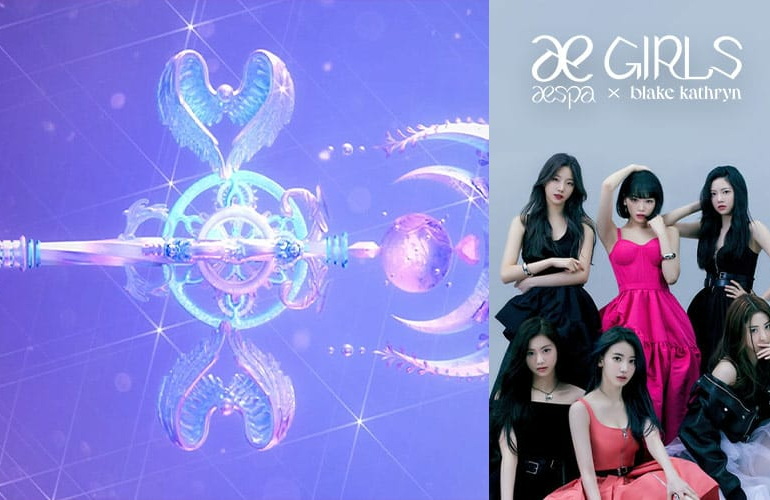The future of business is in the hands of the metaverse generation, as venture capitalist, Meagan Loyst, is proving.
For Meagan Loyst, a 25-year-old venture capitalist and the founder of Gen Z VCs, a global collective of young investors and change-makers, the future is all about community. As an associate at Lerer Hippeau, an early-stage venture capital fund that focuses on seed investing in up-and-coming companies, Loyst is deconstructing the traditional ways the industry works.
Built out of both the isolation of the pandemic and the desperate need to network with like-minded people, Gen Z VCs was created to provide a platform for young venture capitalists to share knowledge, links, insights, questions and answers, because the support just wasn’t there for them at the beginning. In doing so, Loyst, who joins me on a call from New York, has grown the collective from a small Slack group into a movement made up of more than 17,000 people.
The future sounds bright. Of course the worries and concerns that Gen Z have nowadays about the world – the environment, war and pandemics, to name a few – are still regularly in everyone’s thoughts, but what the generation is doing is uniting for the greater good of business and the global community of young, aspiring professionals who want visibility in every industry. Gen Z VCs is a testament to that.
The usual perception of venture capitalism, and capitalism in general, is that it’s every man for himself. So when a twentysomething woman who describes herself as underqualified for her job and lacking in the benefits that nepotism and an Ivy League education can provide manages to get to where she is today, it proves that Gen Z are turning the tide on traditional practices. And the drive to break down those barriers and unify the Gen Z community across the world stretches far beyond the boardroom.
With the inevitable widespread rollout of the metaverse and Web3, Gen Z are finding their sense of belonging in worlds that transcend real life. Young people are coming together on various platforms and immersing themselves in the next developments of the digital age. As Loyst attests, that’s why the voices of Gen Z have to be heard across all industries. If any company is trying to appeal to the consumers of tomorrow, then who better to ask than the people bringing the future to the fore?
What created the need to start Gen Z VCs and how has it grown since its launch?
We started during the pandemic. I didn’t really intend for it to become a community, it kind of just did because there was a real need for what we were doing. Now we’re the largest, fastest-growing and most engaged community for the Gen Z community in tech and VC [venture capitalism]. It’s become a larger movement around empowering Gen Z voices, and this is happening across every industry, it’s not something that’s unique to VC and tech. You can look at the role models that we look up to – the people who are doing individual activism but are empowering certain movements, like Greta Thunberg and Amanda Gorman. These are all young people who are making a big impact on the world around them.
Why did you think it was important to empower Gen Z voices?
Because no one listens. There are definitely stereotypes of what a typical VC looks like. I can almost guarantee it’s not me – a 24-year-old woman from Long Island who went to public school, didn’t go to an Ivy League school. I got my job through a cold email, my parents don’t work in finance. I wasn’t supposed to be here but I made it happen by being crafty and creative, and that’s the Gen Z narrative – make and create the future you want, whether it’s for you or for other people. The trope of having younger founders has been around for a while – Mark Zuckerberg started Facebook while he was at college. But on the other side of the table it’s usually people who have previously been founders, have been operators for ten years, and they are the people who have been highlighted on stage in boardrooms.
What do you think drove the rapid rise in popularity of your Slack channel in its early days?
At the centre of what we’re doing is actually connection and friendship. When I started at Lerer Hippeau it was my second job out of college. When I switched jobs I didn’t have an embedded network of people that I could call to learn about companies from or to trade notes with on things that we were learning. This was the case for so many people. Because of the pandemic I was living at home with my parents for most of the time. So having that strong connection was a lot harder to manufacture outside this community. People made friends so quickly when they joined because you’re brought together by this innate interest in VC and tech and changing the world.
In light of the real sense of community that you’ve created, what would you say the future of business looks like?
I see it being more collaborative. It’s very difficult for me to get along with people who think that the world is a game, that you have to fight and claw and bring other people down to move up yourself. If I’ve learnt anything during the past year it’s that the opposite is true. People really admire others who try to think beyond themselves and elevate other people along the way. With Gen Z VCs, that’s a large reason why a year ago I had 50 followers on Twitter and now I have almost 30,000. I had never written any articles or been in the press before. Now I’m in the press probably once a week talking about Gen Z. The reason people care is because I’ve created a community, but more importantly a movement to empower other people to go and do the same.
How are Gen Z CEOs running companies differently from CEOs from other generations?
It’s the DNA with which you build a company. You can’t just advertise on Instagram and Facebook and expect to build a lasting business. Because of that you think about community building on day one, and more importantly, digital community building. How are you appealing to the everyday person in a way that’s very personalised? Mass market means something very different today. With the LGBTQ+ community, for example, ten years ago people would have thought that was very niche but it’s actually massive. There are companies being built for the Latinx community. Gen Z is connected in such a global way because of the way we interact online, in Discord servers, on TikTok, through the lens of our favourite creators on Fandom. As a Gen Z founder you have to be able to meet those trends and do so in a way that’s authentic.
Why do you think Gen Z voices have been overlooked until now?
I think [older generations] always underestimate young people. There are a lot of people who put value on paper – résumé experience over lived experience. I think we’re changing the tide in a lot of ways and showing what we can do and how we do it. I spend 14 hours a week on TikTok… If you’re trying to go viral on TikTok and talking about how to reach the next generation, guess who’s the expert? This ties back to the metaverse too. If you look at actual platforms and where people are spending their time in the metaverse – Roblox, Fortnite, Minecraft – that is Gen Z. So if you’re trying to understand the metaverse, who better to ask than Gen Zs who are actually spending time there?
How does Web3 offer greater opportunities for Gen Z?
There are different career opportunities in the metaverse that are native to Gen Z people. Everyone is learning every day. Older people don’t necessarily have a native advantage in learning about crypto and the metaverse and Web3 because it’s so new to everyone, so it kind of levels the playing field. You put in the time and the work, you can create really interesting opportunities for yourself. When you think about Web3 projects and getting involved with interesting NFT projects, you can do the research, you can figure out how to network with the right people. That’s not something that is founded on or restricted by age or experience. Web3 is open to everyone intentionally – it’s democratising access to a lot of stuff, and to crypto in a lot of ways.
How can younger people be protected while Web3 is being developed?
Education is everything. There are going to be people who try to take advantage of others who are learning and don’t know as much. I think some type of moderation is going to be important. If you’re building for people in Web3, you have to make sure you’re showing the risks. When you’re buying an NFT to be able to participate in The Sandbox in the metaverse there’s a real downside risk in terms of the investment aperture for that. You need to know what you’re getting into and know the risks of it. Also being thoughtful of how you whitelist [a cybersecurity strategy through which a list of email contacts is approved], making sure you’re creating some accessibility for people who maybe don’t know as much, like Adidas did for its Into the Metaverse 30,000 NFT drop. It sold $24 million [about £18.3 million] worth of NFTs in an afternoon and set aside a good portion of those for people who don’t have Bored Apes or CryptoPunks, who just love the brand and want to be involved. I think you have to be thoughtful from the outset with what you’re doing.
How can we make sure that Web3 doesn’t create the same problematic societal norms as Web2 has?
I think people are still figuring that out. It doesn’t necessarily have to be a popularity contest. You can be valued based on your contributions because they’re all being documented on the blockchain. In Web2, in the real world, there are a lot of societal pressures and expectations around how you look and how you present yourself. That changes a lot in Web3. If you’re in the Bored Ape Yacht Club, you all look like apes walking around the metaverse, which might be ugly to other people but to you it means something. You’re part of this community because you think it stands for something larger than yourself and you identify with the avatar, whatever it may be. Those are things that are very different in a Web3 world.
To finish on a positive note, what can you say about what you’re doing and the impact it will have in the future?
I think the world is ready for a new and fresh perspective and Gen Z brings that to the table with a sense of authenticity, good intentions and the opportunity to not only make an impact for themselves but also the world around us. I think that’s through the lens of the community, through the lens of empowered ownership and Web3 and the metaverse. With Gen Z there’s this sense of immediacy with what we’re doing. We’re not going to wait around to create a future that we want to see. We’re going to do it now and we’re going to do it in a way that makes sense to us. For Web3 we’re going to make money doing it. We’re going to find friendships through it and we’re also going to see how we can use this collective power to improve the world around us.
© 2022 Hunger Publishing Ltd. View our T+Cs and Privacy + Cookie policy


